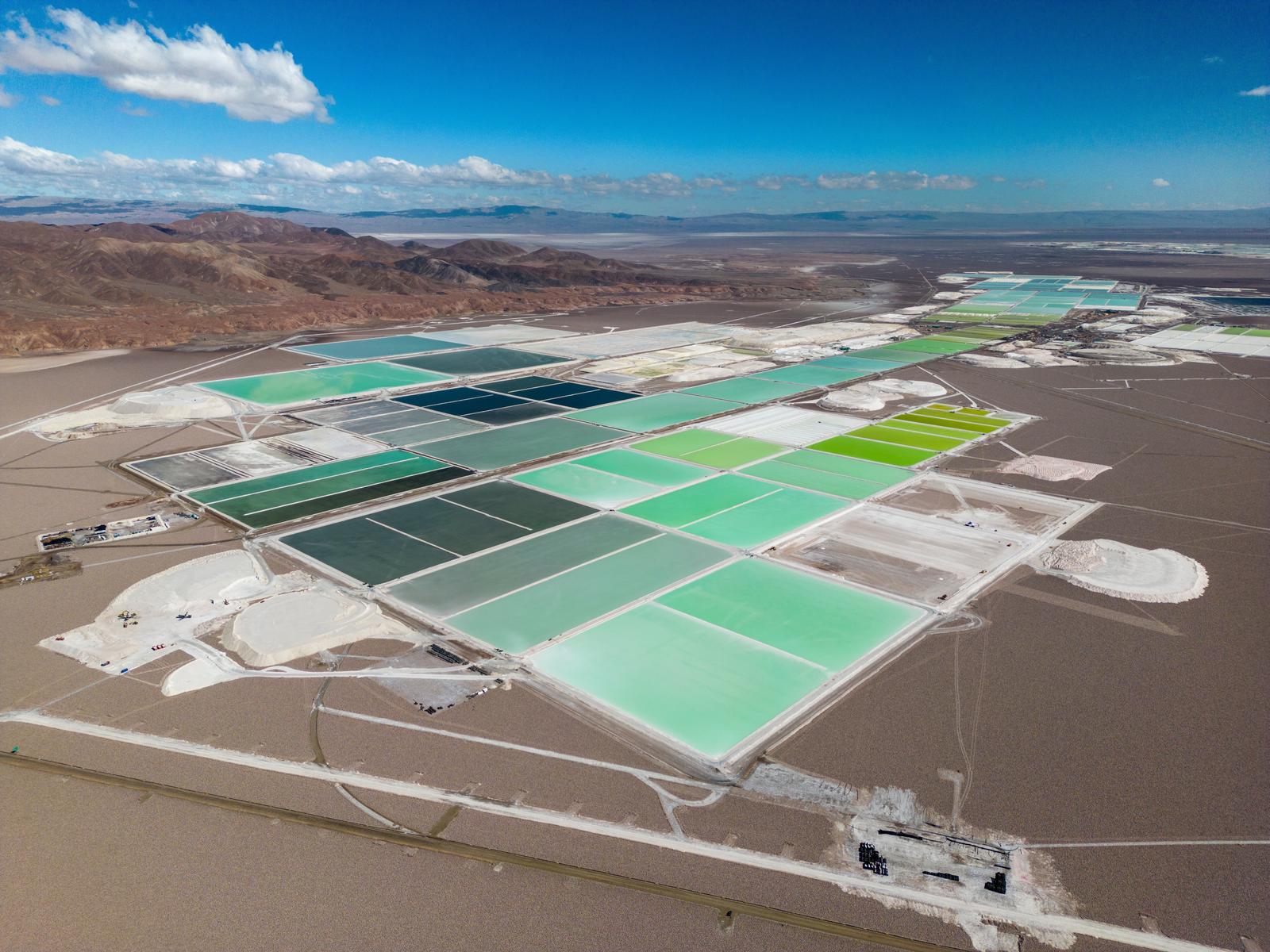Mineral prices are highly vulnerable to geopolitical fragmentations, IMF’s World Economic Outlook finds

A nightmarish scenario for critical mineral supply: Geopolitical fragmentation between the world’s major superpowers could substantially increase the prices of critical minerals, resulting in a decreased global investment — by as much as 30% — in renewables and EVs by 2030, the third chapter (pdf) of the International Monetary Fund’s (IMF) October 2023 World Economic Outlook found. The report — released yesterday on the sidelines of the Annual Meetings in Marrakesh — assesses the impact of global tensions on the prices of cobalt, lithium, copper, and nickel, critical minerals needed for the green transition. Decarbonizing the world economy would be more difficult if the market for minerals is fragmented, the report concludes.
A world divided in two: For illustrative and analytical purposes on how political conflicts can hamper trade in critical commodities, the IMF ran a model with the main scenario assuming that two theoretical blocs are constructed based on the 2022 UN vote on Russia’s war in Ukraine, with one bloc labeled the “US-Europe+ bloc,” and the other being the “China-Russia+ bloc.” The exercise assumes that there is no trade in a particular commodity between blocs, whereas intra bloc trade of the commodity is unaffected.
Supply disruptions and fluctuations: “Roughly half of the world’s countries rely on three or fewer exporting countries for their imports of minerals, and a quarter on only one,” the IMF says, adding that this leaves importers vulnerable to supply disruptions in the near term. The IMF singles out minerals as the commodity most at risk of price fluctuations given that both the production and processing stages are concentrated in a few countries, unlike other goods. The production stage cannot be diversified due to the geographic concentration of deposits, while relocating the processing stage may be impossible over the short and medium term, given the importance of the workforce’s acquired skills, the Fund explains.
The political blocks are likely to be impacted differently: The price of a commodity falls in the bloc that used to be a net exporter of that commodity and increases in the net importing bloc, the report outlines. Given that 80% of the supply of the four minerals is mined in the US-Europe+ bloc, the results of the simulation show that the price of the minerals under study would rise substantially in the China-Russia+ bloc in parallel to sizable declines in real GDP. The US-Europe+ bloc could experience similar increases in the prices of refined minerals, which are processed mostly in China, Russia, and South Africa. However, the US-Europe+ bloc would not be able to reap the benefits from the relative oversupply of minerals at the mining stage since it would take several years to scale up mineral refining capacity.
To what extent are the blocs impacted under the simulation? If critical mineral markets are fragmented, the inability of the China-Russia+ bloc to import copper, nickel, lithium, and cobalt from countries (such as Chile and Indonesia) would lead to an additional price increase in that bloc of 300% on average compared to the baseline scenario of an integrated world. Acquiring minerals would be more expensive, which would lead to lower investment in solar panels and wind turbines and fewer EVs. In this net zero scenario, there would be about 70% fewer new EVs in the China-Russia+ bloc in a fragmented world compared to an integrated one. On the other hand, due to an expected slow scale up for mineral refining, fragmentation generates only small gains in the US-Europe+ bloc, with a slightly higher number of EVs produced, but no gains in renewable energy capacity by 2030. On balance, global net investment in renewable technology and production of EVs would be roughly 20% lower compared with the baseline because of mineral market fragmentation.
How can we plan ahead of potential fragmentations? The findings demonstrate a strong need for multilateral cooperation on trade policies. Agreements on a “green corridor” for critical minerals would safeguard the global goals of averting climate change, the IMF suggested, adding that the corridor could preserve integrated markets for minerals that are critical for decarbonization. “Without underestimating the political difficulties, such a corridor agreement could be easier to agree on, because it would focus on a smaller set of commodities and countries,” according to the Fund.